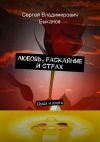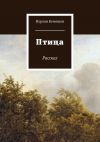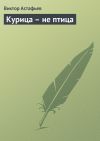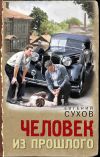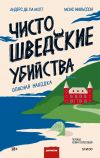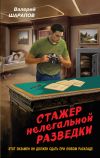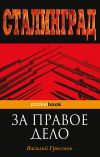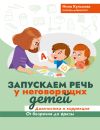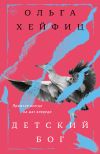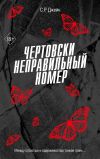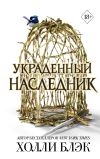Текст книги "Охота за древом. Стихи и переводы"
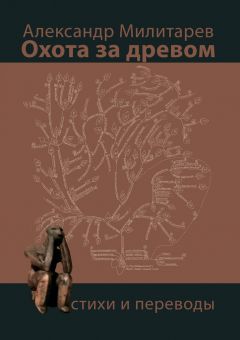
Автор книги: Александр Милитарёв
Жанр: Поэзия, Поэзия и Драматургия
Возрастные ограничения: +18
сообщить о неприемлемом содержимом
Текущая страница: 5 (всего у книги 15 страниц) [доступный отрывок для чтения: 5 страниц]
Семейный солдат (резервист на линии огня)
The bachelor ’e fights for one
As joyful as can be;
But the married man don’t call it fun,
Because ’e fights for three —
For «Im an’ «Er an’ It
(An’ Two an’ One make Three)
«E wants to finish ’is little bit,
An’ e’ wants to go ’ome to is tea!
The bachelor pokes up ’is ’ead
To see if you are gone;
But the married man lies down instead,
An’ waits till the sights come on,
For ’im an’ «Er an’ a hit
(Direct or recochee)
«E wants to finish ’is little bit,
An’ ’e wants to go ’ome to ’is tea.
The bachelor will miss you clear
To fight another day;
But the married man, ’e says «No fear!»
«E wants you out of the way
Of «Im an’ «Er an’ It
(An’ ’is road to ’is farm or the sea),
«E wants to finish ’is little bit,
An’ ’e wants to go ’ome to ’is tea.
The bachelor ’e fights ’is fight
An’ stretches out an’ snores;
But the married man sits up all night —
For ’e don’t like out-o’-doors.
«E’ll strain an’ listen an’ peer
An’ give the first alarm —
For the sake o’ the breathin’ ’e’s used to ’ear,
An’ the ’ead on the thick of ’is arm.
Mandalay
Бобылю отвечать за шкуру свою,
в бою он бодр и лих.
А семейному что за кайф в бою?
В ответе он за троих:
за себя да за нее,
да за «этого» – вот и считай.
Ему бы скорей отстрелять свое
и домой – допивать свой чай.
Бобыль за бруствер тянет шею —
его любопытство жжет,
а семейный лежит на дне траншеи,
лежит и команды ждет.
На хрен ему и на хрен ей
рикошетом или прямой?
Ему бы свое отстрелять скорей
и к чаю поспеть домой.
Бобыль промажет – рукой махнет:
ладно, другой раз,
а семейный не ищет новых хлопот —
у семейного верный глаз.
Ему, ведь, в деревню к себе да к ней,
да к «этому» – морем, хоть как.
Ему бы свое отстрелять скорей —
он выпить чай не дурак.
Бобыль навоюется за день
и пошел храпеть на весь свет.
А семейному ночь сидеть не лень —
к ночам доверия нет.
Башку рукой подперев, сидит,
чтоб первым засечь врага,
и в оба слушает и глядит,
поскольку жизнь дорога.
The bachelor may risk ’is ’ide
To ’elp you when you’re downed;
But the married man will wait beside
Till the ambulance comes round.
«E’ll take your ’ome address
An’ all you’ve time to say,
Or if ’e sees there’s ’ope, ’e’ll press
Your art’ry ’alf the day —
For «Im an’ «Er an’ It
(An’ One from Three leaves Two),
For ’e knows you wanted to finish your bit,
An’ ’e knows ’oo’s wantin’ you.
Yes, «Im an’ «Er an’ It
(Our ’only One in Three),
We’re all of us anxious to finish our bit,
An’ we want to get ’ome to our tea!
Yes, It an’ «Er an’ «Im,
Which often makes me think
The married man must sink or swim
An’ – ’e can’t afford to sink!
Oh, «Im an’ It an’ «Er
Since Adam an’ Eve began!
So I’d rather fight with the bacheler
An’ be nursed by the married man!
Бобыль – он шкурой не так дорожит,
из-под пуль он вынесет вас,
а семейный – он вас посторожит
и санитарам сдаст.
Запомнит, что передать жене
и адрес ваш – все точь-в-точь,
а если шанс есть, и вам, и мне
будет вену сжимать всю ночь,
Он же себе отдает отчет,
что трое меня и вас,
и знает он, кто нас дома ждет,
и что два – это три минус раз.
А значит, ради нее
и того, кто из трех главней,
надо нам отстрелять свое
и к чаю домой скорей.
Да, втроем надо чай нам пить!
И несколько раз на дню
я думаю: может семейный плыть,
но не вправе пойти ко дну.
От Адама и Евы закон такой —
есть «этот», он и она.
С бобылем мне бы в бой, чтоб семейный, живой,
после боя вынес меня.
Мандалей
By the old Moulmein Pagoda, lookin’ eastward to the sea,
There’s a Burma girl a-settin’, and I know she thinks o’ me;
For the wind is in the palm-trees, and the temple-bells they say:
«Come you back, you British soldier;
come you back to Mandalay!»
Come you back to Mandalay,
Where the old Flotilla lay:
Can’t you ’ear their paddles chunkin’ from Rangoon to Mandalay?
On the road to Mandalay,
Where the flyin’-fishes play,
An’ the dawn comes up like thunder outer China ’crost the Bay!
«Er petticoat was yaller an’ ’er little cap was green,
An’ ’er name was Supi-yaw-lat – jes’ the same as Theebaw’s Queen,
An’ I seed her first a-smokin’ of a whackin’ white cheroot,
An’ a-wastin’ Christian kisses on an ’eathen idol’s foot:
Bloomin’ idol made o’mud —
Wot they called the Great Gawd Budd —
Plucky lot she cared for idols when I kissed ’er where she stud!
On the road to Mandalay…
When the mist was on the rice-fields an’ the sun was droppin’ slow,
She’d git ’er little banjo an’ she’d sing «Kulla-lo-lo!»
With ’er arm upon my shoulder an’ ’er cheek agin’ my cheek
We useter watch the steamers an’ the hathis pilin’ teak.
Elephints a-pilin’ teak
In the sludgy, squdgy creek,
Where the silence ’ung that ’eavy you was ’arf afraid to speak!
On the road to Mandalay….
If
Возле пагоды в Молмейне, на закатной стороне
ждет бирманская девчонка и тоскует обо мне.
Слышу – ветер в пальмах шепчет и колокола гудят:
«В Мандалей, солдат британский,
в Мандалей вернись, солдат!».
В Мандалей вернись, солдат,
где вдоль бухты лодки мчат
и до самого Рангуна их уключины стучат.
Разве ты забыл, солдат:
рыбки над водой летят
и восходы от Китая будто молнии блестят?
В цвет песка на ней юбчонка и шапчонка в цвет волны,
и звалась она Супьялет – в королеву той страны.
В первый раз – в руке сигара – удивила тем меня,
что христосовалась с Буддой, ногу идола обняв.
В храме глиняный стоял
главный бог их, черт их драл,
да ей стало не до Будды, как ее я целовал
на дороге в Мандалей…
А когда в туман над рисом солнце медленно легло,
у воды она под банджо пела мне «кула-ло-ло».
И глядели мы, обнявшись, прислонясь щекой к щеке,
на слонов, бредущих с грузом, и на лодки вдалеке.
Бухтой шли слонов ряды,
в грязи чавкали следы —
так там тихо, что молчишь ты, будто в рот набрал воды
на дороге в Мандалей…
But that’s all shove be’ind me – long ago an’ fur away,
An’ there ain’t no ’busses runnin’ from the Bank to Mandalay;
An’ I’m learnin’ ’ere in London what the ten-year soldier tells:
«If you’ve ’eard the East a-callin’, you won’t never ’eed naught else.»
No! you won’t ’eed nothin’ else
But them spicy garlic smells,
An’ the sunshine an’ the palm-trees an’ the tinkly temple-bells;
On the road to Mandalay…
I am sick o’ wastin’ leather on these gritty pavin’-stones,
An’ the blasted Henglish drizzle wakes the fever in my bones;
Tho’ I walks with fifty ’ousemaids outer Chelsea to the Strand,
An’ they talks a lot o’ lovin’, but wot do they understand?
Beefy face an’ grubby ’and —
Law! wot do they understand?
I’ve a neater, sweeter maiden in a cleaner, greener land!
On the road to Mandalay…
Ship me somewheres east of Suez, where the best is like the worst,
Where there aren’t no Ten Commandments an’ a man can raise a thirst;
For the temple-bells are callin’, an’ it’s there that I would be —
By the old Moulmein Pagoda, looking lazy at the sea;
On the road to Mandalay,
Where the old Flotilla lay,
With our sick beneath the awnings when we went to Mandalay!
On the road to Mandalay,
Where the flyin’-fishes play,
An’ the dawn comes up like thunder outer China ’crost the Bay!
Поросло быльем все это – вечно прошлое милей,
но автобусы не ходят через Сити в Мандалей.
Вспомнил в Лондоне я: был там меж служивых старых слух:
«Кто услышал зов Востока, ко всему на свете глух».
И плывут издалека
пряный запах чеснока,
колокольный звон на храмах, солнце, пальмы, облака
по дороге в Мандалей…
Я сносил подошв полсотни на булыжных мостовых,
а за чертов смог плачу я ломотой в костях моих.
В Челси я гулял и Стрэндом с сотней баб, на вкус любой,
про любовь они толкуют, да какая там любовь…
Лица грубы, а какой
дух от тела – боже мой!
У меня была и чище, и нежней в стране другой
по дороге в Мандалей…
За Суэц хочу – к востоку, мне б доплыть до той страны,
где дожить свой век мечтаю, где добро и зло равны,
где без заповедей можно жить, всю жажду утолив,
возле пагоды Малмейна, лежа глядя на залив,
в Мандалее, в бухте той,
где судов качался строй
с дней, когда мы в Ирравадди флот ввели британский свой.
Стайки рыбок над волной
в Мандалее, в бухте той,
где восход встает с Китая и горит перед тобой…
Если (сыну)
If you can keep your head when all about you
Are losing theirs and blaming it on you,
If you can trust yourself when all men doubt you,
But make allowance for their doubting too;
If you can wait and not be tired by waiting,
Or being lied about, don’t deal in lies,
Or being hated, don’t give way to hating,
And yet don’t look too good, nor talk too wise:
If you can dream – and not make dreams your master;
If you can think – and not make thoughts your aim;
If you can meet with Triumph and Disaster
And treat those two impostors just the same;
If you can bear to hear the truth you’ve spoken
Twisted by knaves to make a trap for fools,
Or watch the things you gave your life to broken,
And stoop and build ’em up with wornout tools:
If you can make one heap of all your winnings
And risk it on one turn of pitch-and-toss,
And lose, and start again at your beginnings
And never breathe a word about your loss
Если ты будешь трезв, когда теряют
все голову, тебя ж во всем виня,
верен себе, когда не доверяют
тебе свои, за то их не кляня,
если готов в нужде хранить терпенье,
оболганный – жить правдой до конца,
зла не держать при общем озлобленье,
но из себя не корчить мудреца;
если умеешь сны не путать с явью,
силен умом, не им одним живешь,
равно готов и к славе, и к бесславью,
не ставя этих двух химер ни в грош,
и выстоишь, когда лжецы тенета
из слов твоих для простаков сплетут,
а дело твоей жизни канет в лету,
и ты с нуля начнешь сизифов труд;
если ты на кон то, что даровала
судьба, все вмиг метнешь, в горсти собрав,
и проиграешь, и начнешь сначала,
ни стона сожаленья не издав;
If you can force your heart and nerve and sinew
To serve your turn long after they are gone,
And so hold on when there is nothing in you
Except the Will which says to them: «Hold on!»
If you can talk with crowds and keep your virtue,
Or walk with kings – nor lose the common touch,
If neither foes nor loving friends can hurt you,
If all men count with you, but none too much;
If you can fill the unforgiving minute
With sixty seconds’ worth of distance run —
Yours is the Earth and everything that’s in it,
And – which is more – you’ll be a Man my son!
если ты сможешь жилы, нервы, сердце
заставить дважды на износ служить,
встать вновь, когда в тебе – за гранью смерти
все, кроме воли и команды «жить!»;
если сумеешь спор держать с толпою
без страха и на равных с королем,
считались чтоб – не слишком – все с тобою,
а груз вражды и дружбы – нипочем;
если наполнишь каждую минуту
шестью десятками секунд труда,
не только в дар получишь землю всю ты,
ты человеком станешь, сын, тогда!
John Masefield5353
Цит. по: PoemHunter.com.
[Закрыть] / Джон Мейсфилд (1878—1967)
I must go down to the seas again, to the lonely sea and the sky,
And all I ask is a tall ship and a star to steer her by,
And the wheel’s kick and the wind’s song and the white sail’s shaking,
And a grey mist on the sea’s face, and a grey dawn breaking.
I must go down to the seas again, for the call of the running tide
Is a wild call and a clear call that may not be denied;
And all I ask is a windy day with the white clouds flying,
And the flung spray and the blown spume, and the sea-gulls crying.
I must go down to the seas again, to the vagrant gypsy life,
To the gull’s way and the whale’s way, where the wind’s like a whetted knife;
And all I ask is a merry yarn from a laughing fellow-rover,
And quiet sleep and a sweet dream when the long trick’s over.
John Masefield / Джон Мейсфилд (1878—1967)
Морская лихорадка
Я в море хочу уйти опять, к морю и к небу уйти,
и все, что мне нужно – это стройный бриг и звезда, чтоб вела в пути,
и штурвала скрип, и ветра свист, и белые паруса,
и туман седой над седой водой, и седой зари полоса.
Я в море хочу уйти опять, потому что прилива зов
заглушить нельзя и забыть нельзя – дикий зов, что яснее слов.
И все, что мне нужно – это ветер, чтоб гнал облака и бриг,
и пенный вал, и брызг фонтан, и пронзительный чаек крик.
Я в море хочу уйти опять, в цыганский шальной шатер,
Где чайка летит и плывет кит, и ветер как нож остёр.
И все, что мне нужно – это врать складно, бродяг друзей веселя,
и сон крепкий, и сон сладкий, когда сменят меня у руля.
Carl Sandburg5454
Цит. по: PoemHunter.com.
[Закрыть] / Карл Сэндберг (1878 – 1967)
When Abraham Lincoln was shoveled into the tombs he forgot
the copperheads and the assassin
in the dust, in the cool tombs.
And Ulysses Grant lost all thought of con men and Wall Street,
cash and collateral turned ashes
in the dust, in the cool tombs.
Pocahontas’ body, lovely as a poplar, sweet as a red haw in
November or a pawpaw in May, did she wonder? does she remember?
in the dust, in the cool tombs?
Take any streetful of people buying clothes and groceries,
cheering a hero or throwing confetti and blowing tin horns
…tell me if the lovers are losers
…tell me if any get more than the lovers
…in the dust
…in the cool tombs.
Carl Sandburg / Карл Сэндберг (1878 – 1967)
В холодной землеGrass
Когда Авраама Линкольна забросали землей, он забыл,
кто убил его, и медноголовых
…в пыли, в холодной земле.
И Улисс Грант перестал думать об Уолл-Стрите и конфедератах,
деньгах и прочей чепухе – все это стало золой
…в пыли, в холодной земле.
Тело Покахонтас, стройное как тополь, нежное как красный боярышник
в ноябре и как папайя в мае – до чего ей было дело? что она помнит?
…в пыли, в холодной земле.
Покажи мне любую улицу, полную людей – людей, покупающих еду и одежду,
кричащих «ура» или дующих в жестяные рожки, обсыпанные конфетти.
Скажи мне: разве влюбленные похожи на проигравших? скажи мне:
разве кому-нибудь лучше, чем влюбленным?
…в пыли, в холодной земле.
Трава
Pile the bodies high at Austerlitz and Waterloo.
Shovel them under and let me work —
I am the grass; I cover all.
And pile them high at Gettysburg
And pile them high at Ypres and Verdun.
Shovel them under and let me work.
Two years, ten years, and the passengers ask the conductor:
What place is this?
Where are we now?
I am the grass.
Let me work.
Сложите тела в штабеля в Аустерлице и Ватерлоо.
Забросайте их землей и оставьте мне.
Я – трава. Я покрываю все.
И сложите их в штабеля в Геттисберге,
в высокие штабеля в Вердене и Ипре.
Забросайте землей и оставьте мне.
Два года, двадцать лет, и у кондуктора спросят:
– А это мы где?
– Что это за место?
Я – трава.
Не мешайте мне.
Henry Reed5555
Цит. по: PoemHunter.com.
[Закрыть] / Генри Рид (1914—1986)
Not only how far away, but the way that you say it
Is very important. Perhaps You may never get
The knack of judging a distance, but at least you know
How to report on a landscape: the central sector,
The right of the arc and that, which we had last Tuesday,
And at least you know
That maps are of time, not place, so far as the army
Happens to be concerned – the reason being,
Is one which need not delay us. Again, you know
There are three kinds of tree, three only, the fir and the poplar,
And those which have bushy tops to; and lastly
That things only seem to be things.
A barn is not called a barn, to put it more plainly,
Or a field in the distance, where sheep may be safely grazing.
You must never be over-sure. You must say, when reporting:
At five o’clock in the central sector is a dozen
Of what appear to be animals; whatever you do,
Don’t call the bleeders sheep.
I am sure that’s quite clear; and suppose, for the sake of example,
The one at the end, asleep, endeavors to tell us
What he sees over there to the west, and how far away,
After first having come to attention. There to the west,
Of the fields of the summer sun and the shadows bestow
Vestments of purple and gold.
Henry Reed / Генри Рид (1914—1986)
Определение расстояния на глаз
Важна не только дистанция, но и то, как
о ней доложить. Возможно, вы никогда не научитесь
определять расстоянье на глаз, зато вам известно,
как доложить о ландшафте: центральный сектор,
правый сектор дуги и то, что мы проходили во вторник,
и еще вам известно,
что постольку, поскольку, являясь военными, карты
отражают не местность, а время по причине,
на которой мы не задержимся. Вам также известно,
что деревья делятся на три вида только: ель и тополь,
и те, у которых густая вершина, и, наконец,
что предметы только кажутся ими.
Поясняю примером: не называйте гумно гумном
или поле вдали, где, к примеру, пасутся овцы.
Вы никогда не должны полагаться на зрение. Вы должны
докладывать так:
в пять часов в центральном секторе замечено десять объектов,
кажущихся скотиной; ни коем виде
не называйте овцами эту дрянь.
Полагаю, что с этим ясно; а теперь для примера
вон ты, что в заднем ряду и спит, попробует нам доложить,
что он видит в направлении запада и определит расстояние,
предварительно включив понимание.
В направлении запада солнце и тени облекают поля
в пурпур и золото лета.
The white dwellings are like a mirage in the heat,
And under the swaying elms a man and a woman
Lie gently together. Which is, perhaps, only to say
That there is a row of houses to the left of the arc,
And that under some poplars a pair of what appear to be humans
Appear to be loving.
Well that, for an answer, is what we rightly call
Moderately satisfactory only, the reason being,
Is that two things have been omitted, and those are very important.
The human beings, now: in what direction are they,
And how far away, would you say? And do not forget
There may be dead ground in between.
There may be dead ground in between; and I may not have got
The knack of judging a distance; I will only venture
A guess that perhaps between me and the apparent lovers,
(who, incidentally, appear by now to have finished)
At seven o’clock from the houses, is roughly a distance
Of about one year and a half.
В знойном мареве белые домики как мираж,
а под покачивающимися вязами мужчина и женщина
лежат, нежно обнявшись. О чем, видимо, следует доложить, что
в левом секторе наблюдается ряд строений,
а под группой тополей пара кажущихся человеческими особями
предположительно совокупляется.
Так. Данный ответ можно назвать
только относительно удовлетворительным по причине
того, что были опущены два существенных фактора.
Человеческие особи: в каком они направлении
и определить расстояние с учетом того, что между объектом и нами
может быть мертвая зона.
Между объектом и нами мертвая зона, и я никогда
не научусь определять расстоянье на глаз. Я только рискну
предположить, что между мною и кажущимися любовниками
(которые, кстати, кажется, закончили свое дело)
в семь часов от домов расстоянье на глаз
приблизительно около полутора лет.
Richard Wilbur5656
Цит. по: PoemHunter.com.
[Закрыть] / Ричард Уилбер (1921—2017)
You know those windless summer evenings, swollen to stasis
by too-substantial melodies, rich as a
running-down record, ground round
to full quiet. Even the leaves
have thick tongues.
And if the first crickets quicken then,
other inhabitants, at window or door
or rising from table, feel in the lungs
a slim false-freshness, by this
trick of the ear.
Chanters of miracles took for a simple sign
the Latin cicada, because of his long waiting
and sweet change in daylight, and his singing
all his life, pinched on the ash leaf,
heedless of ants.
Others made morals; all were puzzled and joyed
by this gratuitous song. Such a plain thing
morals could not surround, nor listening:
not «chirr’ nor «cri-cri.» There is no straight
way of approaching it.
This thin uncomprehended song it is
springs healing questions into binding air.
Fabre, by firing all the municipal cannon
under a piping tree, found out
cicadas cannot hear
Richard Wilbur / Ричард Уилбер (1921—2017)
ЦикадыThe Pardon
Вам знакомы эти безветренные летние ночи, набухшие до предела
почти осязаемыми мелодиями, густыми как
звук граммофона, когда
завод на исходе? Даже у листьев
вспухшие язычки.
А если еще вступают сверчки,
окрестные жители в дверях и у окон, или
вставая из-за стола, ощущают в легких
некую легкую свежесть, но это
обман слуха.
Певцы чудес видели явное знамение
в латинской цикаде из-за ее терпенья
и мелодичного перезвона и потому, что она
всю жизнь поет, вцепившись в ясеневый листок,
игнорируя муравьев.
Другие искали морали. Всех изумляло и чаровало
беспричинное это пение. Из такого простого явления
не выводилась мораль: это и не «кри-кри»,
и не «трик-трик». Непротиворечивый подход,
к сожалению, практически не применим
Эта звонкая непостижимая песнь – она взрывает
целительными вопросами вязкий воздух.
Фабр, стянувший всю муниципальную огневую мощь
под заливающееся дерево, обнаружил,
что цикады глухи.
My dog lay dead five days without a grave
In the thick of summer, hid in a clump of pine
And a jungle of grass and honeysuckle-vine.
I who had loved him while he kept alive
Went only close enough to where he was
To sniff the heavy honeysuckle-smell
Twined with another odor heavier still
And hear the files’ intolerable buzz.
Well, I was ten and very much afraid.
In my kind world the dead were out of range
And I could not forgive the sad or strange
In beast or man. My father took the spade
And buried him. Last night I saw the grass
Slowly divide (it was the same scene
But now it glowed a fierce and mortal green)
And saw the dog emerging. I confess
I felt afraid again, but still he came
In the carnal sun, clothed in a hymn of flies,
And death was breeding in his lively eyes.
I started in to cry and call his name,
Asking forgiveness of his tongueless head.
…I dreamt the past was never past redeeming:
But whether this was false or honest dreaming
I beg death’s pardon now. And mourn the dead.
Внимание! Это не конец книги.
Если начало книги вам понравилось, то полную версию можно приобрести у нашего партнёра - распространителя легального контента. Поддержите автора!Правообладателям!
Данное произведение размещено по согласованию с ООО "ЛитРес" (20% исходного текста). Если размещение книги нарушает чьи-либо права, то сообщите об этом.Читателям!
Оплатили, но не знаете что делать дальше?

